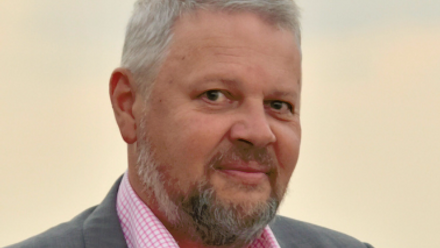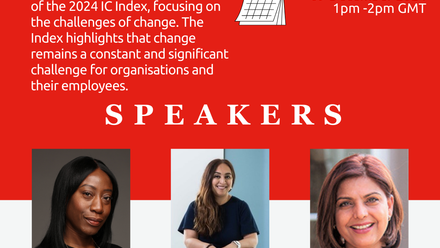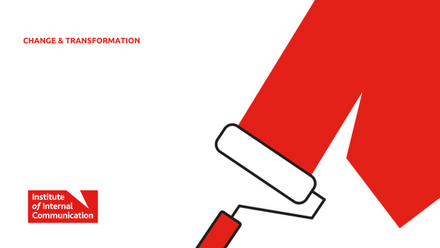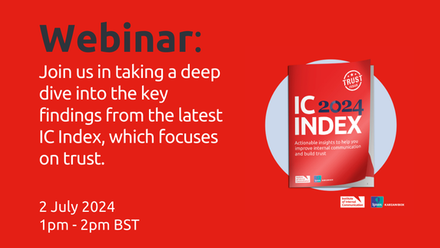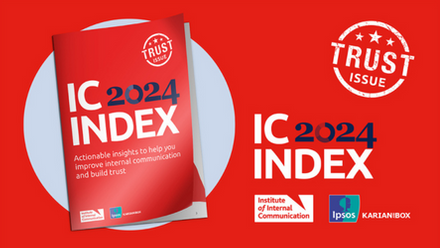Earlier in 2023, Seth Godin published his 25th book. Hot on the heels of a yearlong involvement with The Carbon Almanac project, the release of The Song of Significance seemed urgent and timely.
In this special episode, Cat chats with Seth about the catalyst for The Song of Significance and what led him to write it. This is a conversation about work, the impact of artificial intelligence and how weird is the new normal.
It addresses the essential role of human connection in the future of work and more pivotally for you, our listeners, the expanding opportunity for internal communicators. We urgently need to create new conditions for work, ones in which people can flourish. How we communicate with and show up for one another is an integral part of this, so we really hope you enjoy the listen.
Show notes
Find out more about Seth Godin: https://www.sethgodin.com/
Find out more about The Song of Significance: https://www.penguin.co.uk/books/458050/the-song-of-significance-by-godin-seth/9780241655542
Transcript
Cat Barnard (00:02.041)
Hi and welcome to a bonus episode of the Future of Internal Communication podcast. This is Cat Barnard and today I am in conversation with Seth Godin. I'm really thrilled that he agreed to come and have a chat with me and with us about his most recent book and about the future of work and about the future of internal communication. So...
Seth, thank you so much and welcome back.
Seth Godin (00:33.686)
Thank you, Cat. Every time I talk to you, it's a bonus for me. So I'm glad to be here.
Cat Barnard (00:37.793)
And me too, and me too. I feel very privileged to have you to myself on this podcast occasion. One of the reasons why I wanted to invite you back today was earlier in the year, you published your latest book, The Song of Significance. And as I was reading it, I was just very, very aware and a kind of goosebump tingly.
kind of way that it had so much meaning and relevant to internal communicators. So I was hoping that we could start by me asking you what prompted you to write the book? What were you noticing out there that led to the catalyst of writing?
Seth Godin (01:31.85)
What a neat job internal communications is. It's a job that was even unimagined, unnamed, 100 years ago. That the idea that an enterprise would have to be big enough that it would need someone who would help communicate internally. That communication at all was more than just pick up this widget and put it on this thing. These are all very modern events. And...
A lot of people in this industry, your industry, and many industries are feeling stress. And they're feeling stress because the uninterrupted run we had of 100 years of building industrial entities is coming to an end. Because of robots, because of AI, because of outsourcing, because of the race to the bottom, because of online. When we add all of these things up.
It doesn't make any sense to build a company with 200,000 employees ever again. Doesn't make sense to figure out how to come up with the sort of structured bureaucratic rules that we have to get people to comply to in the old fashioned way. And a lot of people have discovered that their jobs were turned into cookie cutters, that their jobs were followed the manual.
fit in the box. That's why org charts have squares on them, because it's a box, and you can be replaced at any time. How do we cause the world to be exactly the way we expect it to be? And it's stressful, because the world is weird, and it's never going to be this normal again. Tomorrow is going to be weirder than today. And it's easy to imagine that AI is replacing people. And in fact, it's replacing a whole bunch of mediocre work.
but doesn't have to replace people. And so what I wanted to do in this book is tell the story from my point of view of the story we tell ourselves, of the story of work, of what does it mean to do work that matters. And I'm just thrilled at how it has resonated with people. And I hope it helps everyone just find a little bit more humanity in what they do.
Cat Barnard (03:44.549)
Hmm, I think it is really interesting reading it because I guess, you know, when I sit back, I come from what I would label a small business background. I've worked with big organizations, but in startup and scale up phase. So I've kind of seen more of the magic being created than I have seen the stasis and the...
the rot setting in, you know, bluntly. And I think there's an awful lot that is written about what is wrong with work today. I was curious because obviously you and I met when we were working on the carbon almanac project together. And I think, I don't think I'm over egging it when I say there was a certain type of magic that was manifest for the duration
Seth Godin (04:16.107)
Hehehehe
Seth Godin (04:39.886)
Mm-hmm.
Cat Barnard (04:43.597)
the project and bringing the book to life, which is a world away from how some organisations are functioning or malfunctioning today. If you were to call it based on your ideas and your motivation to write the book, what would you say is wrong with work today?
Seth Godin (05:15.45)
I'm struggling for the pithiest possible answer. So give me a second here. I would say we are unclear about what work even is. We knew what work was when we chopped down trees and dug ditches. And we knew what work was when we poured steel or did things that involved physical labor. But along the way, work turned into this other thing. For a lot of people like us who are privileged enough to work with our fingertips and our brains.
Work is called work because it's not a hobby. It is something we show up for as a professional. But what is wrong with it is that the few people at the top are so driven by maintaining the status quo and getting predictable results that they're snuffing out the very inspiration and connection that makes work actually cause people to thrive.
And it's that division. And what we were able to do with the 300 people in 40 countries that wrote the Almanac, then it grew to 1,900, is not one of us got paid, including me. Everyone was there because they wanted to be there. Nobody could tell anybody what to do. It was all leadership and very little management. And all of that adds up to it is possible.
Cat Barnard (06:23.409)
Hmm.
Seth Godin (06:31.97)
for magic to happen, for alacrity and speed and accuracy and amazement to happen. We proved it. This can happen in any organization that cares enough to make it happen.
Cat Barnard (06:45.709)
Yeah, it's interesting, isn't it? It reminds me, as you were speaking, I was reminded of the superb title of that book by the late David Graeber. I think he called it, and I think I can call it because that's what he called it, bullshit jobs. Like all the number of jobs that exist today where ultimately the people that are being asked to perform those work tasks and those responsibilities don't actually understand because they've never had it explained to them.
why their contribution matters, and what impact their actions make on the bigger organisation and the bigger picture. And actually, against the backdrop of a climate crisis and escalating resource depletion, I'm not sure that many C-suite executives who
have been driving this bus for so long can actually explain how those micro contributions matter, which is why nothing gets talked about. And to your point, square boxes, organograms, just do the work, don't ask questions.
seth godin (08:01.834)
Yeah. Yeah, so I have a small rift to bring climate back into this. But first, I only corresponded with David a little before his early passing. He was a brilliant writer. Some of his stuff doesn't hold up to a lot of scrutiny. But his work about bureaucracy and jobs is fascinating to talk about. There's two problems in these kinds of jobs. The first one is that the boss just wants you to do what you're told.
and that you're probably getting hired not to further the mission of the entire organization, but simply to make the boss's day better. But second, the employee doesn't really want to know. The employee doesn't want to know because then they're on the hook. They don't want to know because then they have agency, because then they can use their best judgment. And we've been indoctrinated from a young age to just do what we're told. And so it's a mutual benefit.
that actually benefits no one. I'm working on a talk on climate that I'm gonna be doing in a couple weeks, so I want to share a couple thoughts with you. There are two lies, but I don't want to call them lies because there isn't a liar involved. There's just a lot of us accepting myths that don't hold up to scrutiny. And the first one is, I'm just doing my job is an okay excuse for anything.
that the whales are almost dead, but I'm a sea captain, I'm just doing my job. Or innocent people are going to the GI, yeah, but I'm just a district attorney and I'm doing my job. Then when we think about the phrase, I'm just doing my job, and how it lets us off the hook.
We've embraced that as how we can justify the climate getting to where it's gotten in the last hundred years. The people who found oil in Texas in 1910 were just doing their job. And the people who figured out how to make a sports car that got four miles per gallon were just doing their job. And the second one is the climate, thanks to carbon footprint, is your fault, your responsibility. And if you weren't a hypocrite, it would be fixed.
seth godin (10:12.758)
Paradoxically, with the I'm just doing my job thing, we've accepted this argument. And so we shame our neighbor for using a leaf blower, or we shame ourselves for not sorting our glass into six different colors and recycling. And inevitably, we are all hypocrites, and so we get stuck. And the purveyors of the status quo want that to happen. They want us to realize that we are stuck and that we should just go back to doing our job. And I think the answer.
And I'm I promise I'm bringing this back to the audience. It's listening. But I think the answer is we have to change the conditions. I'm just doing my job also has the unstated sentence within the boundaries that are required of me. So you're not allowed to have your job be kidnapping pets and holding them out for ransom because that's against the law. You're not allowed to do that. So what we can do is instead of beating ourselves up for being hypocrites, what we can do
and change the system. We can say, let's suspend the beef tax and stop subsidizing things. We can say, let's make rules about what you're allowed to dump into the air we all breathe and what you're not allowed to dump into the air. And so when we think about the mindful, thoughtful, talented people in internal communications, whether we're talking about climate or anything else, the leap here, the possibility in the face of AI, is to say, I'm just doing my job is no longer my job.
My job is to actually figure out what my job should be, organize the others, and do that.
Cat Barnard (11:49.217)
Right, I agree entirely. And I think that's one of the conversations that we have regularly at IOIC headquarters. We have this amazing once in a lifetime opportunity to shape internal communication for what it could be. The alternative being that if we wait for permission, if we wait to be asked, we're really gonna get the crumbs on that table. And...
And actually what I perceive with, you know, 30 years of observation is that while digital communication technologies have gifted us the most extraordinary gains, they've also over time eroded our capacity to connect and bond together as human beings, which is exactly what we need.
right now in order to address these challenges that, let's face it, the oil barons and the peak industrialists would have us believe there are no solutions to.
seth godin (12:59.446)
Right. Yes, exactly right. And so to get very prosaic and simple about this, when we think about the dials that are available to somebody in internal communications. My phone number is in the database for the local county for emergency alerts and the cost to any bureaucrat to do that internal communication, because internal to the county is zero. So.
I get a call last week from a robot that says, announcement, if you need your passport renewed, you can go here and blah, blah. That's not an emergency. That's not an emergency at all. But it was free to use this new technology that they have to interrupt me. And once a few bureaucrats do it, all of them will do it, and then this system will break. And so when you think about AI.
plus the ability to email everybody, plus the ability to call a meeting, plus the ability to make somebody sit through a Zoom call. You have the power to steal people's attention at scale. If you use it to just do your job, you will do short-term wins that lead to long-term nonsense that lead to the asset disappearing. And the alternative is to figure out how to be more human.
how to talk to the right person at the right time in the right way, and not talk to the wrong person at the wrong time. But that will require agency. It will require you to do something that wasn't done by the person who had your job two years ago. And that is what leadership looks like.
Cat Barnard (14:39.525)
And so agency, but also I suspect, and this is an intergenerational thing that I perceive, we don't necessarily at scale understand that we have these intrinsic inherent gifts of sociality because we don't talk about them enough. And I'm a firm advocate of use it or lose it. I...
I feel that there's an absolute imperative at the moment for some body or some people to step up in organisations and stand up for human-to-human communication, particularly against the backdrop of recent developments in AI. And I've noticed that you've blogged.
often this year about artificial intelligence and I suspect, I don't know, but I suspect that you have concerns about it. I have concerns about it. I'm really keen to see the sun lit uplands. I've worked in technology for most of my career and I'm well aware of hype bubbles. So I wonder whether you could share
some thoughts about, in particular, you know, pertaining to generative AI, what are we to look forward to and what concerns you the most? And I do appreciate that's a massively loaded question or two.
seth godin (16:24.946)
No, it's a great question for people listening at home. I studied a PhD level artificial intelligence in 1983 at Stanford. That's how long I've been playing with this. I worked with Arthur C. Clark, who created HAL in 2001 at the end of his career and with Isaac Asimov and Michael Crichton. So I've been thinking about AI for a very long time. And Arthur used to say that any sufficiently
Cat Barnard (16:34.26)
Oh wow, I did not know.
seth godin (16:53.406)
advanced technologies in this indistinguishable from magic. And one of the leaders of the community used to say AI is everything a computer can't do yet. So when computers could play chess, people say, oh, yeah, but that's just a stunt. And when computers could do this and when computers could now we're there, people don't have that explanation anymore. What AI is the large language model, AI is an illusion in our heads.
The computer is just doing math. It doesn't know what it's talking about. It is just putting together symbols. But the only way for us to deal with it, including the people who build it, is to imagine that there's a little person inside that computer. To imagine that someone like us is typing in there. That's a mistake because it leads to evil little people who are doing things to us. It's not. It's just math. So with that said,
biggest shifts are it's always on and it's really, really cheap. People don't have those two advantages. Computers do. Now, should we be nervous about it? Well, let's think about what happened 120 years ago when electricity started to show up. When electricity started to show up, there was an argument between George Westinghouse and Thomas Edison about whether it should be AC or DC power. And Edison, who was quite a showman,
was trying to argue against AC power, which was Westinghouse's idea. And so what he did was he got some elephants and he electrocuted them to scare people. And he also invented the electric chair to execute people, to scare people. I believe that AI is the biggest shift in our world since electricity. And if you had asked people in 1900, are you afraid of electricity? Some of them would say, sure. And they would be right.
In fact, in the 1920s when the dishwasher, when the washing machine was invented, dozens of people were killed by the cord of the thing wrapping around their neck as it worked its way through. I'm not making this up, right? That electricity has downsides. But I don't think many of us are willing to live in a world without electricity, particularly clean solar power, right? AI is like this. It is going to change the world dramatically. If it's going to change it first.
Cat Barnard (19:01.081)
Bye.
Yeah.
Cat Barnard (19:09.442)
Mm-hmm.
seth godin (19:16.438)
by replacing every mediocre job it can find. If you do something that I can describe that a computer can do, a computer is going to do it instead of you. An example is reading a mammogram or a wrist x-ray. If it's a normal average x-ray, that's what mediocre means is average, an AI can already read it better than a radiologist. Cheaper, faster, instantly.
And so if you're just a mediocre radiologist, you better look for something else to do or get much more human at it. So what will happen next? Well, if history is any guide, it will invent an enormous number of new jobs. Every technology has invented more jobs than it has replaced. There are now six billion jobs on this planet that weren't here when I was born. Where did they all come from?
right. They came from technology. And so A.I. is going to get really good at some extraordinary things and some banal things as well. So I use it an hour a day and I think everyone should if you want to be smart about it. So, for example, I haven't programmed a computer since 1981 and now I can program a computer again because I can say to A.I. please write the C++ code or the Python code to do this. I need this done.
Cat Barnard (20:12.898)
Right.
seth godin (20:42.782)
and it writes the code and I copy the code and I paste it into the compiler and it gets an error and I paste the error back into the AI and says it gave me this error to try this instead and it works. And I'm a programmer now I'm a mediocre programmer after you know 40 years away from the field I'm mediocre at it from zero and we were having a conversation yesterday with someone and they showed a picture of their dog hanging.
Cat Barnard (21:01.732)
Right.
seth godin (21:08.294)
Out the window and I knew what kind of dog it was so I asked dreams time I This kind of dog with aviator glasses and a pilot sat on please and it gave me a photo of it in less than 30 Seconds that looks better Then if someone had actually taken a photo of a dog dressed up like this like there were mirrors There were reflections in the mirror the glasses all is a way of saying that human beings have a long history of saying something and then making it happen and
Cat Barnard (21:37.196)
Hmm.
seth godin (21:37.866)
What AI is going to do is make things happen. There are going to be really bad side effects. A few bad people are going to be able to use AI to scam and spam millions of people. There are real issues, not denying that. The stuff that's being done in porn is scary and horrible. But that is the same as electricity. Bad things are going to come, but we're also going to be able to make things that we never could have made before.
Cat Barnard (21:54.373)
Hmm.
Cat Barnard (22:06.501)
I think what's really interesting about what you've described there, as you know, I worked in technology staffing for such a long time and so not very long ago I would have said, well, software development, that's a niche set of skills that will not be, will not be automated, it won't be replaced. And yet what you've just described is effectively a means by which computer programming is...
doable by a quasi lay person. So that is not a typical skill set that we might have predicted could become vulnerable to artificial intelligence. And yet on the flip side, and I'd love to bring this back to a line that you wrote in the song of significance, because it really chimes with me, you had written.
It's impossible to invest too much time and energy in your frontline workers. They are your marketing team and your R&D workers. And frontline workers, people that pick up the phones, people that interact with customers, stakeholders, whoever, we're told in the pervasive narratives about artificial intelligence, that those jobs will get replaced by chatbots. I...
don't agree with that and I suspect you don't either. Tell me a little bit more about what you were thinking about when you wrote those words.
seth godin (23:42.614)
First, I want to just put a little aside. Programming is invulnerable. The best programmers in the world are now using AI to do their work better. What's vulnerable about programming is that it is no longer something you can claim cannot be done aided by a computer. We're going to need these laypeople to become programmers. And they can do that now that we have this tool. But to answer your question, if you think about voicemail, voicemail replaced
90% of receptionists. And that would be the end of it. But for example, one insurance brokerage that sold commercial accounts, read one of my books, guy sent me a note 15 years ago, and he said, because of what I read, I replaced all of the voicemail in our company. It cost me more than a million dollars in staffing and tech to do this. But if you call my company now, a human being will answer on one ring every time.
you will never get someone's voicemail. He said it paid for itself in 30 days. Because the fact is, yes, a lot of customer service is going to be replaced by a chat bot. But some organizations are going to replace it by someone with agency and talent and training, who makes you so eager to deal with them, that the value of the interactions goes up. Customer service is free. It's free because the more we put into it, the more we get back.
Cat Barnard (25:14.057)
I got my first job in recruitment because I had to give a presentation and the brief was quite broad and I think it was something along the lines of talk about an aspect of your work that you do at the moment that you love and my brother had done his university degree in hotel catering and management and I came home, I was living with my brother at the time.
And I came home and I was like, oh my God, I've got this interview and I have no idea where to start and I think you will love this. And my brother threw a Tom Peters book at me and said, read this. And I picked up Tom Peters chapter on customer service, pulled together a presentation and I got the job. I think customer service is an-
Absolute, you know, to automate customer service, I think it's such a missed opportunity because who else is going to tell you what your customers are thinking about and what they're preoccupied by and what's keeping them up at night and whether they like you or whether they don't or whether they're about to, you know, take you out of the loop and find a more cost-effective
replacement for you, all of those things. I mean, that is an absolute gift right at your fingertips. And I applaud the guy that you mentioned who replaced all his voicemails and returned to the older method of pick the phone up and answer the query within one ring.
seth godin (26:34.326)
Yep, well said.
seth godin (26:49.47)
Yeah, I mean, you know, you can have a cafeteria or you can have a restaurant. When you have a restaurant, the people who are serving, their job isn't to bring the food from the kitchen. Anyone can do that. Their job is to make you feel like you're in the right place at the right time.
Cat Barnard (27:04.053)
And make you feel is, in my view, that is the antidote to artificial intelligence, because we can get all of the efficiency and we can get all of the cost effectiveness. But we can't.
seth godin (27:14.924)
Right.
Cat Barnard (27:23.093)
We can't automate how we invoke those feelings in those we seek to serve, right?
seth godin (27:33.206)
Right, that's exactly right.
Cat Barnard (27:36.225)
So in a world that has become so hyper obsessed with quantitative data, big data, et cetera, how do we rebalance the pendulum and bring what I think is the art form back into work? And how does communication or more specifically internal communication feed into that?
seth godin (28:03.53)
All right, well, so as we start to wrap this up, I will tell you a story. I don't usually tell stories about my time at Yahoo, but so many fascinating things happened. I was there when they bought the first big data group. And they were actual rocket scientists who came in and started this in 1999 and started working their way through Yahoo's data. At the time, Yahoo was the internet. And that was the beginning and the end for Yahoo.
Because Yahoo decided that they had already won, and their job was to manipulate data to make more money. Instead of saying, how do we bring humanity into conversation, into interactions, even though, yes, there's hundreds of millions of people we need to talk to, how do we actually talk with them, not just direct this flow of magic and energy of people, and somehow make more money? And so when Google came along,
Yahoo saw them. Yahoo owned 10% or something at the time and didn't get it. Didn't understand why someone would be better served with the search box in Google, which let them interact as opposed to the 183 links on the Yahoo home page. So if you're going to a meeting at work, and people are saying, yeah, but all these big companies are using nothing but big data, you can say, yeah, and Yahoo is the biggest company of them all. And now where are they? Data isn't going to solve your problem. Data could.
Identify your problem. Data can help you figure out where you should go next. But sooner or later, a person is going to have to say, I made this. Here it is. How can we dance together? That is the opportunity that's right in front of us.
Cat Barnard (29:46.531)
which becomes unleashed by questions in conversation.
seth godin (29:54.542)
Exactly right.
Cat Barnard (29:55.973)
So my sentiment is that the opportunity for internal communicators is to become less transfixed by the tools and the platforms and to kind of get back to the old school, which is why do we communicate?
Cat Barnard (30:16.717)
What, how does that service and how do we role model exceptional communication that builds community and rapport and trust and belonging and all of those hard to measure emotional responses that actually build loyalty and goodwill over time.
seth godin (30:47.894)
Yes, beautifully said. Get back to first principles. Who's it for? What's it for? What is the change we are here to make? Your job is not to do your job. Your job is to figure out what your job is.
Cat Barnard (31:00.289)
I love that. That's amazing. Thank you so much for sharing your time with us today, Seth. I very much hope that the episode unleashes some thinking in the minds of our listeners. And I will look forward to riffing with you at a later date, but thank you very much for today. Much appreciated.
seth godin (31:27.402)
Always a treat cat, keep making it ruckus. We're lucky to have you.
Cat Barnard (31:31.257)
Thank you.

